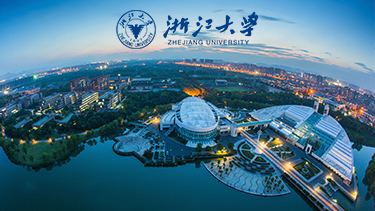The top 15 Food Science Universities in China offer exceptional education, advanced research facilities, and various scholarships, ensuring a comprehensive learning experience for students.
Table of Contents

Top 15 Food Science Universities in China
| Rank | University Name | Location | Key Research Areas |
|---|---|---|---|
| 1 | Zhejiang University | Hangzhou | Food Safety, Food Chemistry |
| 2 | Jiangnan University | Wuxi | Fermentation, Food Engineering |
| 3 | Fudan University | Shanghai | Nutritional Science, Food Safety |
| 4 | China Agricultural University | Beijing | Food Processing, Food Quality |
| 5 | Tsinghua University | Beijing | Food Safety, Food Technology |
| 6 | Shanghai Jiao Tong University | Shanghai | Food Chemistry, Food Safety |
| 7 | Sichuan University | Chengdu | Food Processing, Food Biotechnology |
| 8 | Sun Yat-sen University | Guangzhou | Food Quality, Food Chemistry |
| 9 | Nanjing Agricultural University | Nanjing | Food Safety, Food Processing |
| 10 | Wuhan University | Wuhan | Food Chemistry, Nutritional Science |
| 11 | Huazhong Agricultural University | Wuhan | Food Safety, Food Engineering |
| 12 | Tianjin University | Tianjin | Food Processing, Food Safety |
| 13 | Jilin University | Changchun | Food Quality, Food Biotechnology |
| 14 | Beijing Normal University | Beijing | Nutritional Science, Food Safety |
| 15 | Northeast Agricultural University | Harbin | Food Processing, Food Chemistry |
Accreditation and Quality Assurance
The section provides essential information on the credentials and standards upheld by educational institutions. It outlines the importance of accreditation in ensuring a high-quality education and how it impacts the value of your degree and future career opportunities.
National Accreditations
- Chinese Ministry of Education: Almost all top Food Science universities in China have accreditation from the Chinese Ministry of Education. This accreditation assures that the programs meet the national standards for higher education.
- Chinese Association for Food Protection: Specializes in food safety and is a key accrediting body for Food Science programs focused on this area.
International Accreditations
- Institute of Food Technologists (IFT): Universities like Zhejiang University and Jiangnan University have received international accreditation from IFT, assuring that their Food Science programs meet global standards.
- ABET: Some universities offering Food Science also have engineering-based Food Science programs accredited by ABET.
Specialized Accreditations
- ISO 9001 Certification: Universities with this certification have a proven quality management system in place, guaranteeing a level of quality in education and administration.
- AACSB Business Accreditation: For universities that offer Food Science programs with a business component, the AACSB accreditation can be an additional quality marker.
Student and Alumni Reviews
Campus Facilities
- State-of-the-Art Laboratories: Students often comment positively about the high-tech labs equipped with the latest technology, especially in universities like Fudan and Tsinghua.
- Library Resources: The availability of extensive research papers and journals related to Food Science receives high marks in reviews.
Teaching Quality
- Expert Faculty: Professors with extensive research background and industry experience are often cited as the backbone of the programs.
- Interactive Classes: Alumni frequently mention that case studies and interactive discussions are a regular part of the curriculum, aiding in better understanding and application of concepts.
Career Services
- Internship Opportunities: Reviews often highlight strong industry connections providing ample internship and job opportunities.
- Alumni Network: An active alumni network is often mentioned as a valuable resource for career advancement.
Overall Satisfaction
- High Job Placement Rates: Success in finding relevant job opportunities post-graduation is a recurring theme in alumni reviews.
- Research Opportunities: Many students appreciate the hands-on research experience they gain, particularly in universities with strong research facilities.
Scholarships and Financial Aid
The section offers a comprehensive guide to various funding options available for students. Covering government grants, university scholarships, and external funding opportunities, this section aims to help students navigate the financial aspects of their educational journey.
Government Scholarships
- Chinese Government Scholarship: This prestigious scholarship often provides up to 40,000 RMB per year for tuition, plus free accommodation and a monthly stipend of 2,000 RMB.
- Provincial Scholarships: These offer up to 20,000 RMB per year for tuition. Some provinces also provide a monthly living stipend.
- Belt and Road Initiative Scholarship: Specifically for students from countries participating in the Belt and Road Initiative, this scholarship usually covers full tuition, which can be up to 40,000 RMB per year, and offers a monthly stipend of 2,000 RMB.
University Scholarships
- Merit-based Scholarships: These scholarships often range from 10,000 RMB to 30,000 RMB per year, depending on the university and the student’s academic performance.
- Research Grants: Students showing promise in research could receive grants ranging from 5,000 to 15,000 RMB for specific projects.
- Alumni-funded Scholarships: Typically offering around 10,000 RMB, these scholarships aim to help students who demonstrate both need and academic promise.
External Grants
- Industry-Sponsored Scholarships: Companies in the food sector often offer scholarships ranging from 5,000 to 20,000 RMB, sometimes including internship opportunities as well.
- International Organizations: Scholarships from organizations like the United Nations can offer up to 30,000 RMB per year, specifically for students from developing countries aiming to tackle global food security issues.
- Private Foundations: Grants from private foundations may vary widely, from 5,000 RMB to 25,000 RMB, often requiring academic proposals or essays as part of the application.

Application Process
Eligibility Criteria
- Academic Qualifications: For bachelor’s programs, a high school diploma is mandatory. For master’s and PhD programs, a relevant undergraduate or master’s degree is necessary.
- Language Proficiency: Universities often require an IELTS score of 6.0 or a TOEFL score of 80 for courses taught in English. For courses taught in Mandarin, an HSK level 4 or 5 certificate is usually required.
- Research Experience: For PhD applicants, previous research experience and publications in relevant fields like Food Science can strengthen the application.
- GPA Requirements: A minimum GPA, often around 3.0 on a 4.0 scale, is usually a baseline for eligibility.
Required Documents
- Transcripts: Official academic transcripts are essential and usually need to be notarized.
- Letters of Recommendation: Generally, two to three letters are required, preferably from professors or supervisors familiar with the applicant’s academic or work history.
- Statement of Purpose: This document should outline the applicant’s research interests, career goals, and reasons for choosing the specific program and university.
- CV/Resume: A detailed CV should include academic achievements, work experience, and relevant skills.
- Financial Proof: Proof of sufficient funds or a financial guarantee, often required for visa processes.
Deadlines and Key Dates
- Early Admission: Some universities have early admission deadlines, usually around October of the preceding year.
- Regular Admission: The main application period generally falls between January and March for the academic year starting in September.
- Scholarship Deadlines: Separate deadlines often apply for scholarships, and these can be as early as September of the preceding year.
- Notification of Acceptance: Most universities send out acceptance letters between May and July.
Career Opportunities
Food Industry Roles
- Product Developer: Work on creating new food products or improving existing ones. This role involves research, testing, and a deep understanding of food chemistry.
- Quality Assurance Manager: Ensure that food products meet specific safety and quality standards. This role often requires expertise in food safety regulations.
- Nutritional Analyst: Assess the nutritional value of food products and help companies abide by health guidelines and labeling requirements.
Academic and Research Positions
- Postdoctoral Researcher: Contribute to ongoing research projects, often in universities or specialized research institutes.
- Lecturer/Professor: Teach Food Science courses at a university level, and potentially engage in research and publishing.
- Research Scientist: Work in government or private research labs focusing on areas like food safety, nutrition, or food biotechnology.
Entrepreneurial Opportunities
- Consultant: Offer expertise to food companies on various matters such as safety regulations, product development, and market trends.
- Food Business Owner: Leverage expertise in Food Science to start a food-related business, such as a health-food brand or a food safety consultancy.
Alumni Network
Mentorship Programs
- Career Guidance: Experienced alumni often provide career mentorship to recent graduates, helping them navigate job opportunities and career choices.
- Research Collaboration: Alumni in academic and research positions may collaborate with current students on research projects, providing valuable real-world experience.
Networking Events
- Alumni Dinners and Gatherings: Regular events that allow for networking and catching up, often featuring guest speakers from the industry.
- Webinars and Online Workshops: Virtual events focused on specific topics such as food sustainability or food safety, often hosted by alumni experts in the field.
Online Platforms
- Alumni Directories: Online databases help maintain contact among alumni, making it easier to reach out for professional opportunities or advice.
- Social Media Groups: Platforms like LinkedIn and Facebook host alumni groups where job openings, research opportunities, and industry news are shared.

International Student Resources
Overview of the various services and facilities available to international students studying in China. From orientation programs to academic support, and from housing options to career services, this guide aims to cover all aspects that contribute to a fulfilling and well-rounded student experience. It serves as a comprehensive resource for students seeking to make the most of their educational journey in China.
Orientation Programs
- Welcome Week: Most universities offer a welcome week specifically for international students, providing them an opportunity to familiarize themselves with the campus and local culture.
- Language Classes: Introductory language courses are often part of the orientation program to help students get acquainted with the basics of Mandarin.
Support Services
- International Office: A dedicated office that addresses various needs of international students, from visa-related queries to academic advising.
- Counseling Services: Emotional and mental health support services, often free, to help students adapt to a new educational and cultural environment.
- Health Services: Information on health insurance, local healthcare providers, and how to access emergency services in China.
Cultural Exchange Opportunities
- Global Lounge: A space for international and local students to interact, often hosting cultural exchange activities and language exchange programs.
- Local Excursions: Organized trips to nearby historical sites, museums, and cultural landmarks, aimed at providing international students with a deeper understanding of Chinese culture.
Housing and Accommodation
- On-Campus Dormitories: Usually available to international students, offering a range of options from shared rooms to private studios.
- Off-Campus Assistance: The university often provides resources and information for students looking for off-campus housing, including reputable agencies and neighborhoods.
Academic Resources
- Tutoring Services: One-on-one or group tutoring sessions in subjects like Food Science, statistics, or language classes.
- Library Access: Special sections in university libraries stocked with English-language materials and research journals relevant to Food Science.

